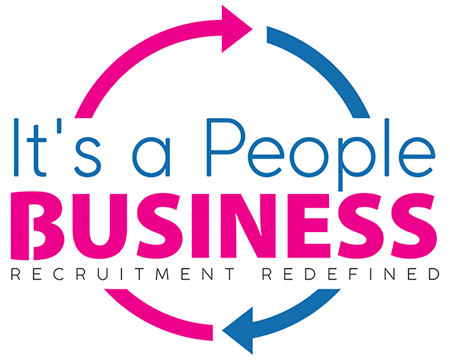
Amidst the present-day competitive job landscape, businesses are in a perpetual contest to secure top-tier talent for their vacant roles. To allure and maintain the finest candidates, employers must forge a favourable candidate encounter that distinguishes them from their counterparts. This is precisely where the concept of personalisation emerges. Personalisation involves customising a candidate's journey to align with their distinct inclinations, requirements, and fascinations. The potential impact of personalisation within the candidate experience is not to be downplayed. Through sculpting an individualised candidate voyage, enterprises can establish a profound rapport with candidates, nurture a favourable perception of their brand, and ultimately enhance the prospect of securing top-notch talent. By adopting a personalised approach, companies can gain a competitive edge in the quest for exceptional candidates, fostering an environment where both employers and candidates thrive.
The power of personalisation in the candidate experience cannot be understated.
In this blog post, we'll explore the benefits of personalisation in the candidate experience and how it can be implemented throughout the recruitment process. We'll delve into the different ways in which employers can personalise their communications with candidates, including customising job descriptions, personalising job offers, and tailoring interview questions. We'll also look at how companies can leverage technology, such as AI and machine learning, to enhance personalisation and create a more streamlined and effective candidate experience. Ultimately, we'll discuss how personalisation can help employers attract and retain top talent, improve candidate satisfaction, and ultimately boost their employer brand. With the power of personalisation, employers can create a more engaging and positive recruitment experience that will help them stand out in a competitive job market and build a strong and talented team.
1. Elevating Engagement through Customisation in Candidate Experience

Efficient and effective talent acquisition necessitates the optimisation of the recruitment process. A potent avenue for achieving this lies in harnessing the potential of personalisation. Customisation amplifies candidate engagement by enabling organisations to tailor their recruitment approach to suit each candidate's unique profile. This can encompass personalised correspondence, bespoke job descriptions, and individually tailored recruitment portals. By infusing personalisation into the candidate journey, organisations can shape a more captivating and memorable recruitment experience. This, in turn, correlates with heightened candidate contentment and improved retention rates.
Elevate your proficiency and efficacy in procuring, enticing, and retaining high-calibre talent.
Moreover, personalisation contributes to the cultivation of a positive employer brand, attracting premier talent and positioning the organisation as a coveted employer. Ultimately, through the refinement of the recruitment process via personalisation, organisations can elevate their efficiency and efficacy in sourcing, captivating, and retaining top-tier talent. This dynamic strategy not only streamlines operations but also underlines the organisation's commitment to candidates, forging a pathway to mutual growth and success.
2. Personalised experiences result in loyalty
2. Personalised experiences result in loyalty

In the context of the contemporary job market, it is indispensable for corporations to establish an exceptional candidate experience, primed to allure and retain consummate professionals. Personalisation is a pivotal factor in achieving this objective, as it can expedite the recruitment process by providing tailored communication and pertinent information throughout each phase of the process.
Read More: The Future of Work: Predictions for Online Recruitment in the Next Decade
Studies have demonstrated that customised experiences lead to augmented levels of allegiance among candidates, resulting in heightened engagement and, ultimately, a greater likelihood of an accepted job offer. Leveraging technology and data, organisations can personalise the recruitment process, engendering a more favourable experience for candidates, while simultaneously enhancing the efficiency and efficacy of their hiring endeavours. For this reason, personalisation should be a paramount concern for organisations seeking to streamline their recruitment process and attract top-tier talent in today's competitive landscape.
3. Candidates appreciate tailored communications
3. Candidates appreciate tailored communications

Streamlining the recruitment process and personalising candidate communications are two key strategies that can help organisations attract and retain top talent. In today's competitive job market, candidates expect to be treated as individuals and not just another name on a list. This is where personalisation comes in. By tailoring communications and providing a customised experience, organisations can demonstrate their commitment to candidates and stand out from the crowd.
Read More: Mastering the Main Stages of Any Recruitment Discussion: A Practical Guide for Employers
In fact, research has shown that candidates are more likely to consider a job offer when the recruitment process is personalised. This includes everything from personalised emails and job descriptions to tailored interview questions and onboarding programs. By investing in personalisation, organisations can create a positive candidate experience and build a strong employer brand that attracts top talent.4. Individualised feedback promotes candidate growth
4. Individualised feedback promotes candidate growth

Prioritising the optimisation of recruitment procedures is crucial for organisations striving to attract and retain high-calibre talent. A pivotal component of this endeavour involves furnishing candidates with personalised feedback. The provision of tailored feedback can serve as a catalyst for identifying areas necessitating improvement and fostering individual growth. Through the dissemination of customised feedback, candidates gain insights into their strengths and weaknesses, enabling them to enhance their skill set for future prospects.
Use data-driven tools and assessments to accurately identify areas of strength and weakness.
This approach underscores the organisation's esteem for each candidate and its dedication to nurturing their professional advancement. A judicious strategy for implementing personalised feedback involves the utilisation of data-driven tools and assessments, capable of pinpointing strengths and weaknesses with precision. This ensures that candidates receive pertinent and actionable feedback, ultimately contributing to a more constructive overall candidate experience. By adopting this approach, organisations fortify their rapport with potential talents and cultivate an environment that nurtures both candidates and the organisation's progress.
5. Personalisation improves brand perception
5. Personalisation improves brand perception
In today's fiercely competitive job arena, it's imperative for enterprises to streamline their hiring procedures and deliver a favourable candidate journey. Personalisation assumes a pivotal role in accomplishing this objective. When candidates are greeted with personalised messages and encounters, they experience a sense of worth and acknowledgment, culminating in a more favourable appraisal of the brand. Personalisation in recruitment comes in various forms, including tailoring job descriptions to match a candidate's skills and background or dispatching customised post-interview emails.
Differentiate yourself from your competitors and attract top talent.
By infusing personalisation into the recruitment process, businesses can set themselves apart from rivals and magnetize top-tier talent. This not only enhances the candidate's experience but can also exert a positive influence on the company's overarching brand perception and standing. Through personalised engagement, companies can forge stronger connections with potential hires, fostering an environment where both candidates and the organisation flourish.
Read More: The Benefits of Working with a Flat Fee Recruiter
Conclusion
Conclusion
Personalisation has proven to be a powerful tool in creating a positive candidate experience, and it should be a priority for recruiters and hiring managers. By leveraging technology and data, companies can create tailored communication, streamline the application process, and provide candidates with a more personalised experience. This not only leads to higher engagement and satisfaction among candidates but also positively impacts a company's employer brand. As the competition for top talent continues to rise, investing in personalised candidate experiences will be crucial for companies looking to attract and retain the best candidates.
Reach out to It's a People.Business for expert guidance and support in implementing these best practices. Our team of recruitment professionals can help you develop a cost-effective and efficient hiring strategy that aligns with your business goals. Contact us today to learn more and take the first step towards building a strong and talented team for your small business.